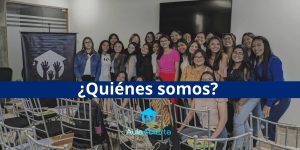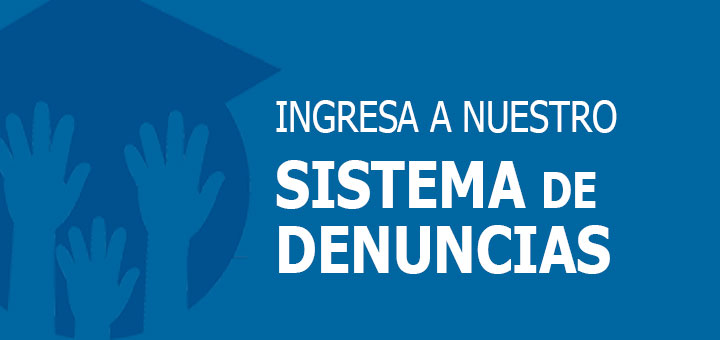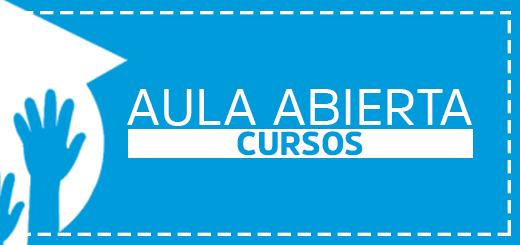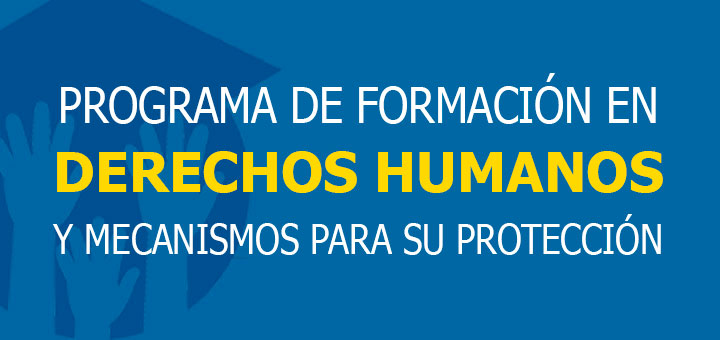Universities in Venezuela: Assaults, repression and death during 2017
The NGO Aula Abierta Venezuela working together with other university human rights organizations, achieved for the first time in the history of the Inter-American System for the Protection of Human Rights the situation of university students in 2017: Violations of academic freedom, criminalization of protest, attacks by the Venezuelan Judicial Power to the university autonomy, budgetary crisis and other attacks to human rights in the university scope.
Historically, universities have been the center of the critical and plural thinking of a nation, where ideas generated from a scientific-academic process emerge directly and foster democracy itself, reason why dictatorships target the universities as the main enemy. During 2017 this situation became reality in the Venezuelan universities in which situation Aula Abierta proved that the Venezuelan government implemented a policy directed to violate university human rights. Being patterns:
Criminalization of the protest and persecution against university students
The protests in Venezuela originated in the end of March 2017, were caused by the judgments 155 and 156 of the Constitutional Chamber of the Supreme Court of Justice, which aggravated the rupture of the constitutional order in Venezuela by usurping the functions of the National Assembly (AN) elected on December 6, 2015, thus initiating a wave of civil society protests demanding the restoration of institutionality and democracy in the country. This wave, whose duration was about 4 months (April-July), increased its intensity when the President of the Republic, Nicolás Maduro, received the uncontested call to the National Constituent Assembly (ANC).
Throughout these 4 months the university community, professors and students, became one of the main participants of the demonstrations where the disproportionate use of force, repression and even the use of firearms was the ordinary procedure by the security forces of the Venezuelan Government and on occasion, by armed civilians, who acted with the acquiescence of the government. In this regard, Aula Abierta Venezuela, in the scope of the Observatory of University Rights, was able to register at least 92 demonstrations called by the academic community or that had a wide participation of the same, were repressed, registering at least 21 irruptions to university campuses. Ironically, a police and military agency like the Bolivarian National Guard (GNB), called to guarantee the security of the citizens, was the main repressive agency of the Venezuelan Government when leading 82% of the repressions.
This excessive and systematic pattern by the government is alarming: At least 17 professors were arbitrarily detained in the course of the year 2017. The reasons were of a different nature: from publishing papers with critical ideas against government public policies to participation in demonstrations against the Venezuelan government. Of these 17 professors, 8 were judged before military courts, 6 before ordinary courts and 3 were released from the detention centers of the security forces.
Among these cases, it could be highlighted the case of Professor Santiago Guevara, professor at the University of Carabobo (UC) who was arbitrarily detained on February 21st, 2017 in the State of Carabobo under the charge of “treason to the homeland,” after publishing an open-ed in the newspaper “El Boletín” published in Madrid, Spain named “De Goya a la Sana Prospectiva” where he addressed the issue of public policy situation and current situation in Venezuela. He has been detained for more than 10 months, his health condition being compromised due to multiple conditions. The Inter-American Commission on Human Rights issued a precautionary measure No.383-17 requesting the Venezuelan State to adopt the necessary measures to guarantee the life and personal integrity of Mr. Guevara García. At present, teachers like Jorge Machado or Rolman Rojas are, like Guevara, unjustly deprived of their liberty.
The numbers in relation to the case of students are not encouraging: 21 students died as part of the repression. Additionally, 339 university students were arbitrarily detained during the period from April to July 2017, with many being presented before military courts and being affected by custodial measures. Clear example of this situation is the case of the 27 students of the Pedagogical Experimental University Liberator (UPEL) of the state Aragua, who were presented before the military justice, in an arbitrary cause chargin them crimes such as instigation to rebellion, subtraction of supplies from the Bolivarian National Armed Forces (FANB), being one of the detainees sent to the El Dorado Military Detention Center. The student´s current health condition is critique, with several of them presenting the disease known as Malaria.
Siege of the Venezuelan Judicial Power against universities
When people think about the judicial power of a nations, the notion of justice regularly appears in their mind. Unfortunately, in the case of the Venezuelan Judicial Branch, the same can not be concluded. Since 2010, more than 43 judgments have been registered that directly violate the content of academic freedom, university autonomy and consequently the right to a quality education.
In 2010 the Electoral Chamber of the Venezuelan Supreme Court of Justice issued a judgment that resulted in the suspension of university elections authorities in more than 9 universities. Subsequently, in 2015, the Constitutional Chamber of the Supreme Court of Justice ordered all public universities in the nation to abide the decision of the quota allocations of the Office of Planning of the University Sector (OPSU) that from will be made on new income to the system of higher education, which is completely arbitrary according to authorities such as the President of the Central University of Venezuela, Cecilia García Arocha. This is logical if we take into account that this office designates up to 100% of the capacity for new revenues that public universities have, that is, by means of this designation the universities are left without the practical possibility of entering the students that have approved the admission processes designed by them.
Taking this into consideration, during 2017 Administrative Law Courts in the state of Merida and the Capital District ordered the Central University of Venezuela and the University of Los Andes, respectively, to suspend the academic competitions for new professors positions, violating a once again university autonomy and seriously disrupting academic freedom and the right to quality education.
Twitter Profile of the Judge who decided the ULA case
https://twitter.com/marinamoralba?lang=es
On November 28 2017 the most recent intervention of the Judicial Power against universities was made: The Seventh Superior Court in Contentious Administrative Matters of the Capital Region ordered the School of Law of the Central University of Venezuela to suspend a degree act of career completion until a student who, incredibly, demanded to be part of it without having approved the entire academic courses of the career curriculum was included in the preliminary list.
Venezuelan classrooms without professors or students
To make matters worse, the constant siege of a deformed “justice”, Venezuelan universities are lacking its most important component: students and professors. From the work carried out by Aula Abierta Venezuela, the following findings were obtained: The Central University of Venezuela (UCV) and the Universidad de Oriente (UDO) have the most alarming number of dropouts with an estimate of 50%. In this sense, for the University of Carabobo (UC) and the University of Los Andes (ULA) is estimated between 30% and 40%, while the University of Zulia (LUZ) estimates the dropout rate of its students by 30%.
The causes of this situation are of different types. The Venezuelan situation is marked by a deep economic, political and social crisis to which must be added the budget crisis that have been denouncing the various public higher education institutions, which claim to receive between 20% and 30% of the budget required to the Ministry of Higher Education, which produces that the student services such as the dining halls, transportation and even scholarships (subsidy programs) are practically null, leaving the university student population helpless.
Additionally, the presence of the Office of Planning of the University Sector (OPSU), as a centralist figure that intervenes in the issues inherent to the universities, serves as a aggravating of the intervention in Venezuelan universities. This office monopolizes the distribution of protein foods from the student dining halls, the allocation and management of resources of the transport departments of the universities, and assigns, in a manner that is not the case with the universities, new student incomes without taking the university in consideration.
Not only students in Venezuela are leaving classrooms, the dropout of university professors has also been recorded. Some universities, such as the Central University of Venezuela, estimate the dropout of university professors for 2017 between 30% and 50%. This dropout of qualified professors abroad attends to the search for a better quality of life. It is logical if one takes into account the pyrrhic salaries that the professors receive for their work: a full-time professor earns approximately $8.5 per month while the intermediate one earns around 5. These figures cover a conversion of 100 Bolivars to 1 US Dollar (parallel rate), according to studies conducted by Aula Abierta Venezuela.
Aula Abierta Venezuela makes visible the university rights in the international community
The civil society in Venezuela, which beyond seeing these situations with concern, has understood the importance of claiming the enjoyment and effective respect of these rights, both nationally and internationally. Aula Abierta Venezuela, in a collaborative work with different organizations and human rights centers that make life in the university community, achieved a milestone by exposing for the first time in the history of the Inter-American System for the Protection of Human Rights, violations and threats to academic freedom and university autonomy within the framework of the 165th session of the Inter-American Commission on Human Rights (IACHR).
However, the Inter-American system was not the only international body where Aula Abierta Venezuela made visible the university issue during 2017. Within the framework of the activities of the IACHR in Montevideo, David Gómez Gamboa, Director of Aula Abierta Venezuela with Mayda Hocevar, Director of the Observatory of Human Rights of the University of Los Andes (ODH-ULA), they were able to hold a meeting with Zeid Ra’ad Al Hussein, United Nations High Commissioner for Human Rights, where he was informed of the concerns civil society has in relation to the respect and promotion of academic freedom and university autonomy.
Definitely, the conquest of university rights is a struggle that Aula Abierta Venezuela aims to develop more strongly by 2018, where the consolidation of these human rights throughout the American continent is envisioned.








